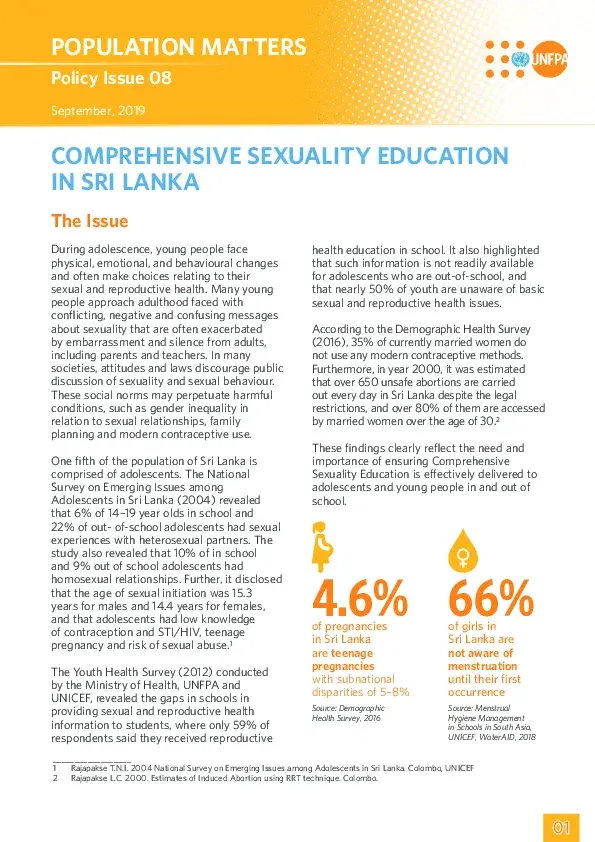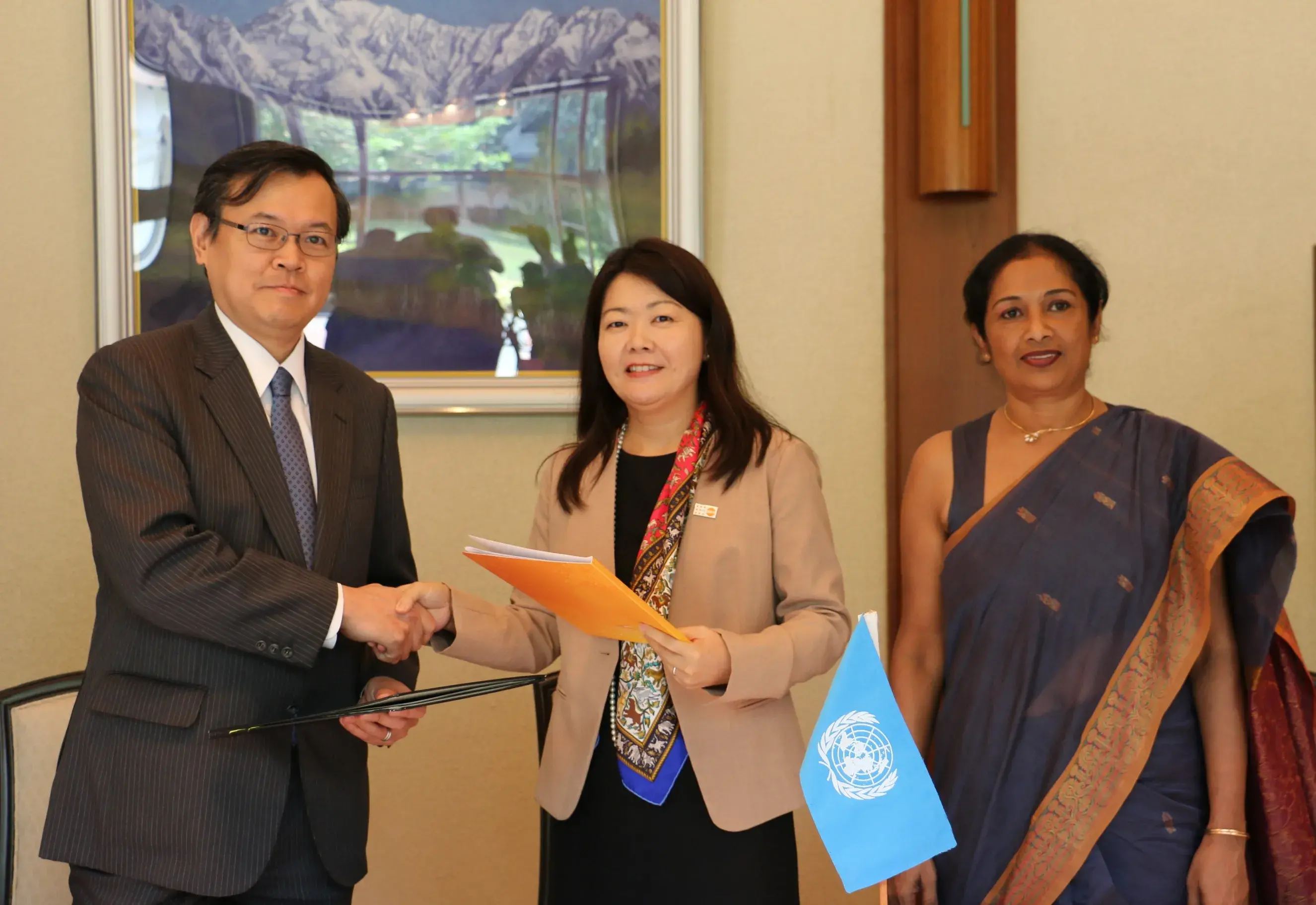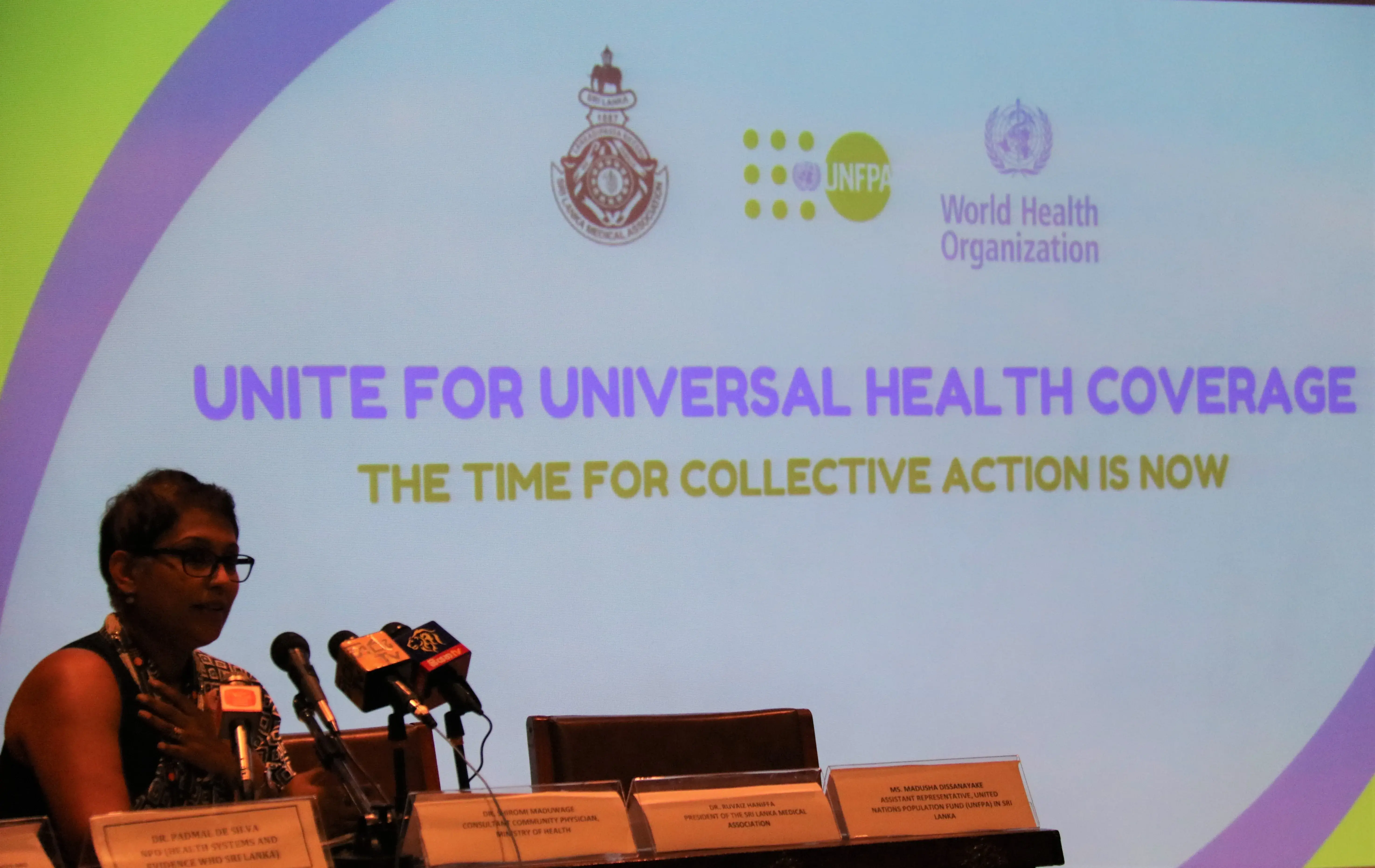During adolescence, young people face physical, emotional, and behavioural changes and often make choices relating to their sexual and reproductive health. Many young people approach adulthood faced with conflicting, negative and confusing messages about sexuality that are often exacerbated by embarrassment and silence from adults, including parents and teachers. These social norms may perpetuate harmful conditions, such as gender inequality in relation to sexual relationships, family planning and modern contraceptive use.
Comprehensive Sexuality Education (CSE) is a curriculum-based process of teaching and learning about the cognitive, emotional, physical and social aspects of sexuality, reproductive health and rights. This policy brief is based on the a study by Prof. Karunatilake on 'An Analysis of Knowledge and Attitudes of Children's Sexaul and Reproductive Health Education', which was commissioned by the Ministry of Education and supported by UNFPA Sri Lanka.





